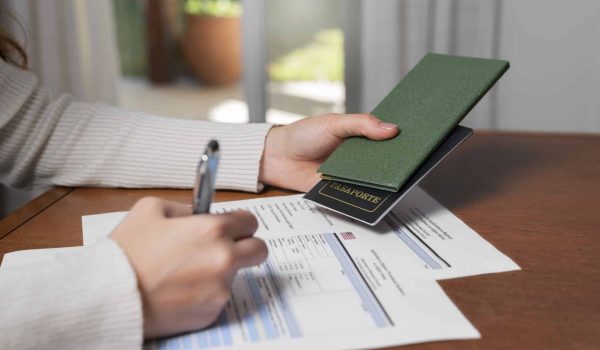Establishing residence in Bulgaria can offer numerous opportunities, both personal and professional. Whether moving for work, study, or with the goal of open a company in Bulgaria, the first essential step is obtaining a residence permit. This document provides the legal basis to live in the country and access a wide range of services.
This guide offers a comprehensive overview of the requirements, necessary documentation, and procedures to follow in order to obtain a residence permit in Bulgaria, with distinctions between EU/EEA citizens and non-EU nationals.
Looking for Accountancy Service in Bulgaria?
Request a free consultation
Book your free 30 minutes meeting with us here to receive all the support you need
General Requirements and Conditions for Residency
Regardless of citizenship, there are common obligations that all applicants must meet to obtain a valid Bulgarian residence permit. Specifically, it is essential to:
- Register with the Immigration Directorate of the Ministry of the Interior within 90 days of entering the country.
- Demonstrate sufficient financial resources to support oneself during the stay.
- Provide valid health insurance coverage within Bulgarian territory.
- Provide proof of accommodation (e.g., rental agreement, property ownership, or hosted by a third party).
To obtain the permit, applicants must submit their application in person. The submission cannot be delegated, although a notarized Power of Attorney (POA) may be used solely for collecting the issued permit.
Authorities may request additional documentation depending on the type of permit and purpose of stay, as detailed in the following sections.
Read also: Deductible Expenses in Bulgaria: What Are They?
Applying for a Residence Permit as an EU/EEA Citizen
Citizens from European Union or European Economic Area member states benefit from a simplified procedure for residing in Bulgaria, in line with EU freedom of movement directives.
1. Required Documents
To apply, the following documents are generally required:
- A valid national ID card or passport
- Proof of the purpose of stay (e.g., employment contract, registration of self-employment, school enrollment)
- Active health insurance valid in Bulgaria
- Proof of financial means (e.g., bank statements)
- Proof of address in Bulgaria (rental agreement or property document)
2. Application Process
The process for EU citizens involves just a few steps:
- Register the address with the local municipality office
- Submit the application to the Immigration Directorate within 90 days of arrival
- Complete the application form and submit the required documents
- Pay the administrative fee (if applicable)
3. Processing Time and Validity
- The decision is usually issued within 24–48 hours if all documents are complete
- The initial permit is valid for 1 year and can be extended up to 5 years
- The residence card can be issued through:
- Standard procedure: 30 business days
- Accelerated procedure: 7 business days
- Standard procedure: 30 business days
Renewal must be requested at least 10 days before expiration. After five years of continuous residence, permanent residence may be requested.
Read also: Tax in Bulgaria: Complete Guide on BG Tax Rates [2025]
Applying for a Residence Permit as a Non-EU Citizen
Non-EU citizens must follow a more detailed process governed by the Law on Foreigners in the Republic of Bulgaria and its implementing regulations. The first step is to apply for a long-term visa, known as Bulgarian TypeD Visa.
1. Visa Types and Purposes
Visa D is required for stays exceeding 90 days and may be issued for purposes such as:
- Employment (dependent or self-employed)
- Enrollment in academic or training programs
- Family reunification
- Other purposes recognized by Bulgarian law
2. Required Documents
The Visa D application must be submitted to the Bulgarian embassy or consulate in the applicant’s country of residence and generally requires:
- Passport valid for at least 6 more months
- Completed application form
- Recent passport photos
- Proof of accommodation in Bulgaria
- Valid health insurance
- Financial documentation (e.g., bank statements)
- Criminal record certificate from the country of residence
- Supporting documents for the stay’s purpose (e.g., job contract, university acceptance letter)
Many of these documents must be officially translated into Bulgarian and, in some cases, legalized with an apostille. It is advisable to check specific requirements with the relevant consulate.
3. Obtaining the Residence Permit
After entering Bulgaria with Visa D, the applicant must register with the Migration Directorate within 90 days and submit a new application for a residence permit.
The procedure includes:
- In-person submission
- Completion of the application form
- Payment of the relevant fee
- Submission of the above-mentioned documents
4. Validity and Renewal
- The initial permit is generally valid for one year
- It can be renewed multiple times, provided the legal requirements are met
- After five years of continuous residence, non-EU citizens may also apply for permanent residence
For those who need professional assistance with immigration procedures or official translation of documents, it is highly recommended to rely on experienced professionals in the field.
Accountancy Bulgaria, experts in accounting in Bulgaria, is the ideal partner for those seeking support in setting up a company as a foreigner or obtaining a residence permit without complications.
Looking for Accountancy Service in Bulgaria?
Request a free consultation
Book your free 30 minutes meeting with us here to receive all the support you need

